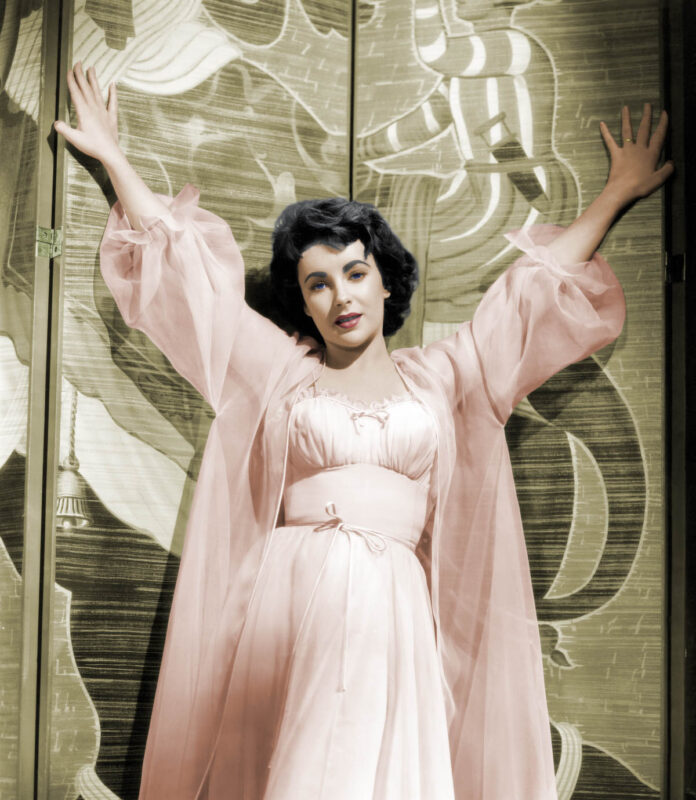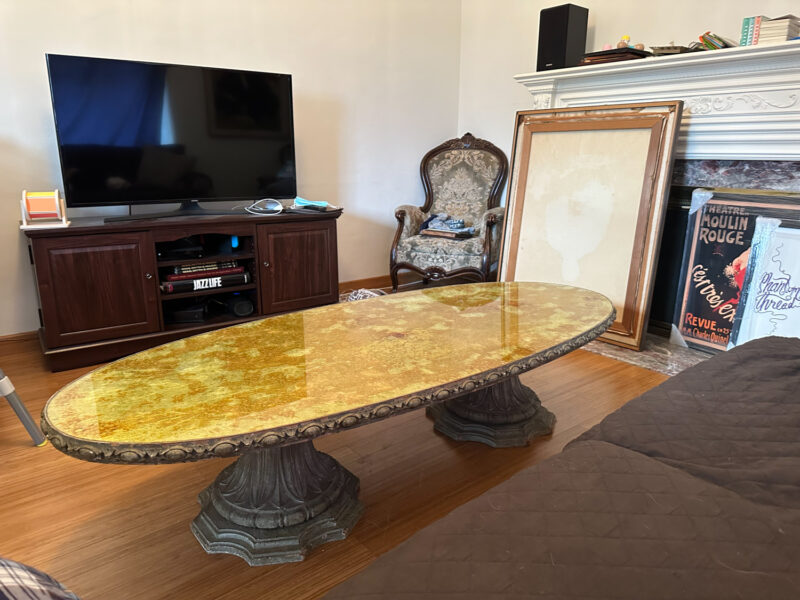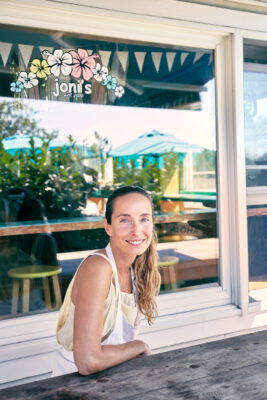
Memorabilia
The Unbearable Lightness of Elizabeth Taylor’s Coffee Table
I own a piece of history. I just didn’t want it to hurt my baby.
I have Elizabeth Taylor’s coffee table.
It doesn’t really make sense as a coffee table though; it would better suit a foyer with a waterfall chandelier and a perilously positioned koi pond—the kind we had in my dad’s house when I was a kid, the one my Aunt Dora fell in while marveling at our waterfall chandelier.
Elizabeth Taylor’s coffee table is a flashy, flaunty thing: gold, long and low, with a glass top and legs that look like they’re made of stone. But when you poke them, they seem to be styrofoam—the stuff of cheap movie props. Maybe it was a movie prop. Maybe it was something out of a scene from her life she just couldn’t give up. Until she just gave it away.

I acquired Liz’s (I have her shit so I can call her Liz) table in 2018 as part of a divorce settlement. It wasn’t my divorce, but it often felt like it was, given that I was representing my dad as his power of attorney while he was incarcerated. My dad is (please don’t make me say “was”) Phil Spector.
My Pops moved into Liz’s former office in Hollywood sometime in the late 1960s. I think it was on Sunset Boulevard. But then I think everything in 1960s Hollywood was on Sunset Boulevard. Liz left the office mostly furnished, the table only one of many pieces she didn’t take. I learned about the Liz origins of the table from my mother, Janis Zavala, who was with my father on and off (and somewhere, on a simmering boil, in between) for over 30 years. She kept an impeccable inventory of his belongings.
When I was assigned to move some items out of my father’s house, my mother issued a non-negotiable directive.
“Don’t forget Elizabeth Taylor’s table!” she yelled at me over the phone.
“Stop yelling at me!” I yelled back.
“I’m not yelling!” She probably believed this.
Then she hung up.
In 2018, I was at my dad’s old house in a frantic rush. I’d been given only several hours to collect his belongings from his now ex-wife, who didn’t exactly throw a “Welcome Home” party for me.
My mother gave me no clues about the table. I didn’t know what it looked like or where it might be housed in a home that was, not to put too fine a point on it, a castle. I figured the newly ex-wife was hiding Liz’s table from me, as there seemed to be no other tables up for grabs. Until I got to the basement. There, in the company of waterlogged amplifiers and chipped cupid statues, was a table turned on its side against a wall.
“Trash or keep?” the movers asked me.
Usually when I—well trained in the art of not letting go—am asked this question I say “Keep”—fast as if I’m smacking a fly. This time was no exception. Even though I thought the table looked like a piece of junk. Even though it was nothing I’d ever want; certainly nothing I imagined Elizabeth Taylor would ever own. Surely her table would be made of magnificent African blackwood or some other rare material. It would have lion heads’ feet and a built-in beveled cupboard for booze and drugs. It would be the kind of table worth banging Richard Burton on—which, in my head, she obviously did. And it would have diamonds, naturally.
Let me call this table I found what it was: an eyesore. But: it was a real coffee table—or at least we could pretend it was. We needed one; until that point my husband, Patrick, and I’d had nowhere to eat or rest our feet in our little rental apartment.
When my mother came over to judge me for how much I’d failed to collect in the divorce harvest, she let out a terrifying chihuahua yelp.
“You got it! Elizabeth Taylor’s table!”
“That?”
“Yes!”
My mother told me the whole story all over again. Apparently my dad had kept it in a bar off the living room at a past residence.
And she added new details.
“One time we had this couple over and the woman stood on the table and peed all over it.”
Patrick and I have since moved into a small home of our own. We have a son now, and until he started learning how to bash his head on things, we kept the table in the center of the living room, tightly squeezed between a playpen from Amazon, a couch from Ikea, a 2015 TV from Walmart, and my dad’s white grand piano from musical history. It was a crowded, hectic space that made guests panicky, because once they got in, there was no clear way to get out.
The table became the epicenter of new baby chaos—cluttered with diapers (both clean and soiled), wipes (both clean and soiled), rags (you get the idea), bottles, and open containers of Aquaphor and Desitin. It was like a Mommy and Me adventure with the goal of the day’s game being to trash Elizabeth Taylor’s table.
Once my son began crawling, we realized Liz’s table had to go. The edges were sharp and the table was impossible to babyproof. We wanted to replace it with something smaller and more functional, like an actual coffee table.
“You can never get rid of that table!” my mom yelled.
“What if I sell it?” I asked, this time of a friend, who was less likely to behead me.
“Can you prove it was hers?” my friend asked.
I could not. I cannot. Who would believe me without some sort of documentation or certificate of authenticity? Without something like that, even at a garage sale this thing might not sell.
But despite everything I dislike about it—the awkward shape, the overt gaudiness, the way it cuts your knees when you try to maneuver around it—the table is mine now. I can’t imagine parting with it; it means too much, though I struggle to identify exactly what it means, just as I struggle to not feel cursed by what many would feel is a blessing: possessing a shiny relic of one of the most celebrated starlets of all time.
Near it, around it, famous people sat, talked, partied. Maybe a legendary actor was once discovered in the middle of the night in carnal congress with a legendary actress—not his wife. Maybe a Beatle once passed out on it and got a concussion. The table still seems heavier to me than it actually is. Its weight includes lost time, lost people, and the unrecorded outtakes of a cinema icon.
It’s one thing to admire the open air museum of a dead celebrity’s life; it’s quite another thing to live in it. So, a few months ago, I wrapped the table up in old blankets, got a storage unit, and moved it into the silent abyss of impossible things one must never forget are theirs.
The living room makes just a little bit more sense now with the table replaced by some piece of shit from Target. But I am still weighed down with anxiety about all the other stuff in the house. Liz’s stuff, I mean. Because I have more than just her coffee table, it turns out.
“You got her lamps too,” my mom shrieked when she poked around our home for the first time. “And the paintings!”
Apparently, I did. Two marble, headless lamps and two tremendous paintings (I fear they may have been marketed as “oriental” in Liz’s day) that weathered the great flood of my father’s neglect and also all the leaks in his basement. One of the water stains my mom tried to cover up with black shoe polish. Probably she’d done it thinking she would save the painting. Probably my dad had thanked her for saving it, when he really meant to thank her for saving him, as she did time and again.
For now, I’ll keep these items of Liz’s—and of my father’s. Storied shrines in the dark of closets and storage units, unsure of where in my little house, in my little life, they’ll ever fit.
Hero photo by Sunset Boulevard/Corbis / Getty Images



